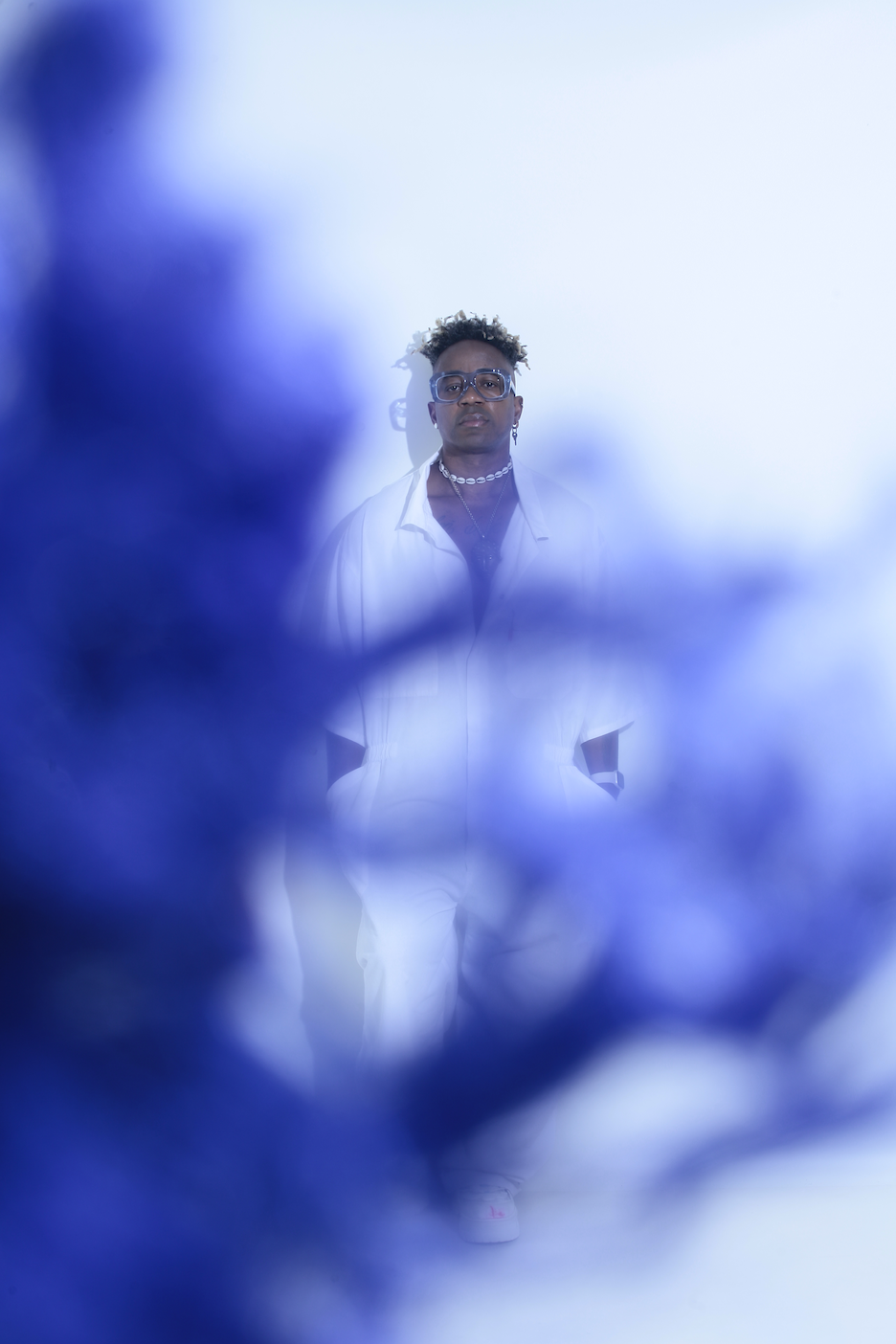MADÍBÁ

ALBUM PRE-Launch 12.05.2023 19:30
With Blick Bassy, Bonaventure Soh Bejeng Ndikung and Acèle Nadale
Language The event takes place in English
FREE ENTRy Donations welcome
ACCESS Our space is accessible by wheelchair
On 26.05.2023, Blick Bassy will release his new album, entitled Madíbá. Together with his label InFiné Berlin, we welcome you to a pre-launch in the SAVVY house. Blick Bassy invites you to plunge into a conversation on the central theme of his new album: water and its creative, substantial, spiritual and physical nourishment and the precarious state it is allover the world. The talk will flow into an acoustic session of a handful of songs from the new album.
What if water, this element so universal and vital, was the link we needed to find to rebuild our relationship with the living? If we understand a little more each day our interdependence with each other, from trees to whales, from men to plankton, water becomes the thread that connects all living things. So, in a context of climate emergency where this resource is becoming scarce, what sensitive, philosophical, vital relationship can we find with this element? And can we thereby recast our empathic relationship to the living, this universal fellow?
Following the successes of Akö (2015) and 1958 (2019), singer and composer Blick Bassy is back with a fourth album, again sung in the Baasa language of Cameroon. Madíbá brings together twelve songs in the form of fables, dedicated to the theme of water, in which his high and angelic voice dominates, carried by delicate guitar, synthesizer melodies, and sober brass arrangements. The cuts are diaphanous and the songs testify to a contemporary and poetic Africanity at the crossroads of soul, folk, and electro. Blick Bassy’s albums have a humanist and universal dimension. His fifth and new solo album, titled Madíbá, which means water in the Douala language of Cameroon, comes in the form of songs close to the fable, in which Bassy explores "a theme shared by all” – water, the source of life. “It is a question of showing a form of respect, of connecting with the living, of imagining through these titles a world in which we could live in coherence with our environment.”
The fables of the album explore in a more concrete way different themes related to water, its rarity, its necessity, its energy or its vital power. The twelve songs all bring together a series of figures, animals, or various characters, embodied in turn by Blick Bassy: "I have fun stepping into the shoes of a bird, a cat conversing with an elephant, a flower worrying about its declining beauty, a monkey looking for a spring or a storyteller with his grandchildren. In these texts, water can even take on a human appearance.” Beyond the tale, the texts of the album also refer to our climate crisis, or to the problems of access to water, a way for the artist to approach serious subjects through a poetic form which avoids didactic or moralizing speeches.
BLICK BASSY was born in Cameroon where he grew up between Yaoundé, the capital, and Mintaba, his native village where singing, dancing and music are customary. He draws his multiple inspirations from his childhood memories, traveling between music, dance, performing arts and cinema. Blick Bassy brings these disciplines into dialogue with brio. After spending ten years with the group Macase, which he created, he embarked on a solo career and produced four successful albums, making him one of the most inventive multidisciplinary artists of his generation. Winner of the Grand Prix Sacem Musique du Monde, his latest album 1958 evokes the year in which the independence leader Ruben Um Nyobe was assassinated by the French army.
Blick Bassy takes up this heritage and questions the conflicts of yesterday and today. His futuristic Afro music makes him an avant-garde artist mixing traditional and electro-modern sounds. In 2016, he wrote his first novel, Le Moabi Cinéma, published by Gallimard and awarded the Grand Prix which celebrates the continent's French-speaking authors.
"In each of my projects, the same concerns drive me: how Africa can reconnect with its identity, emancipate itself from its colonial history, inspire its youth and invent its future.”
PHOTO Gabriel Dia
